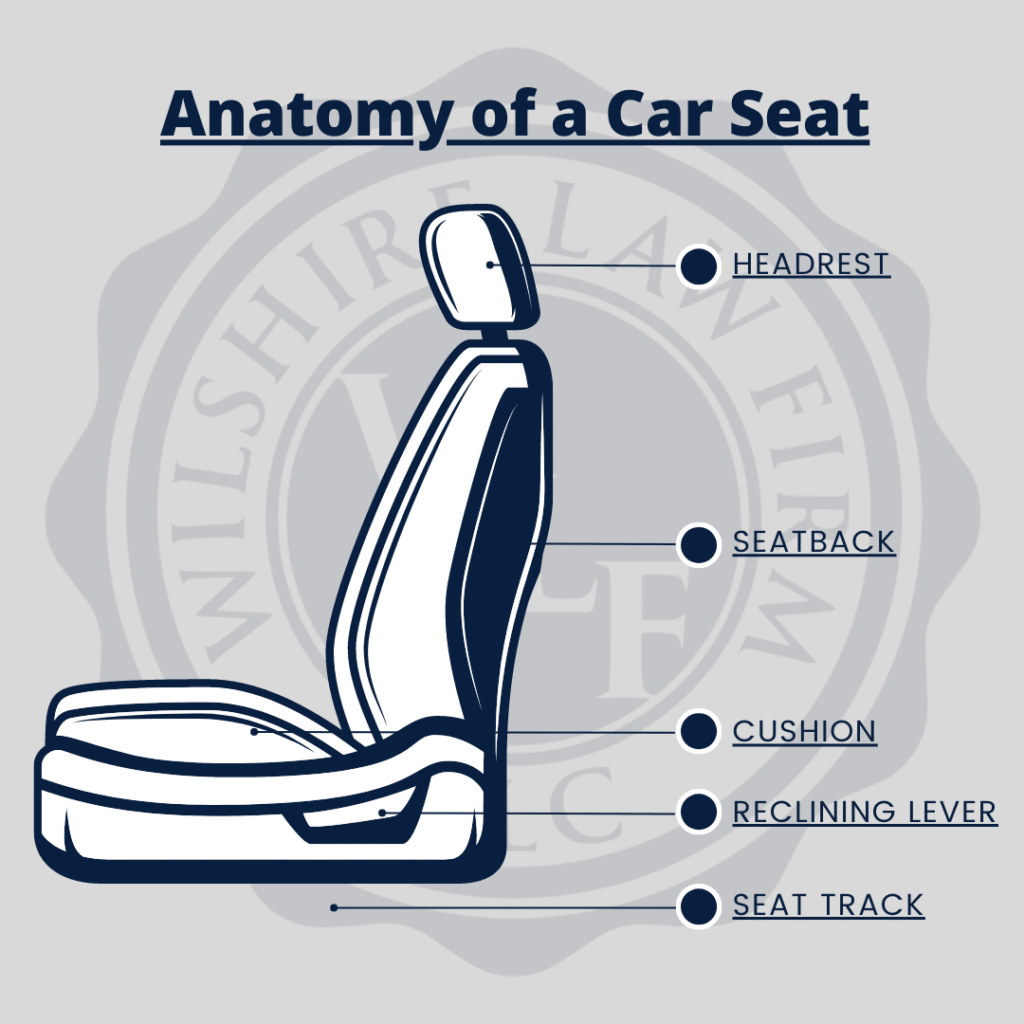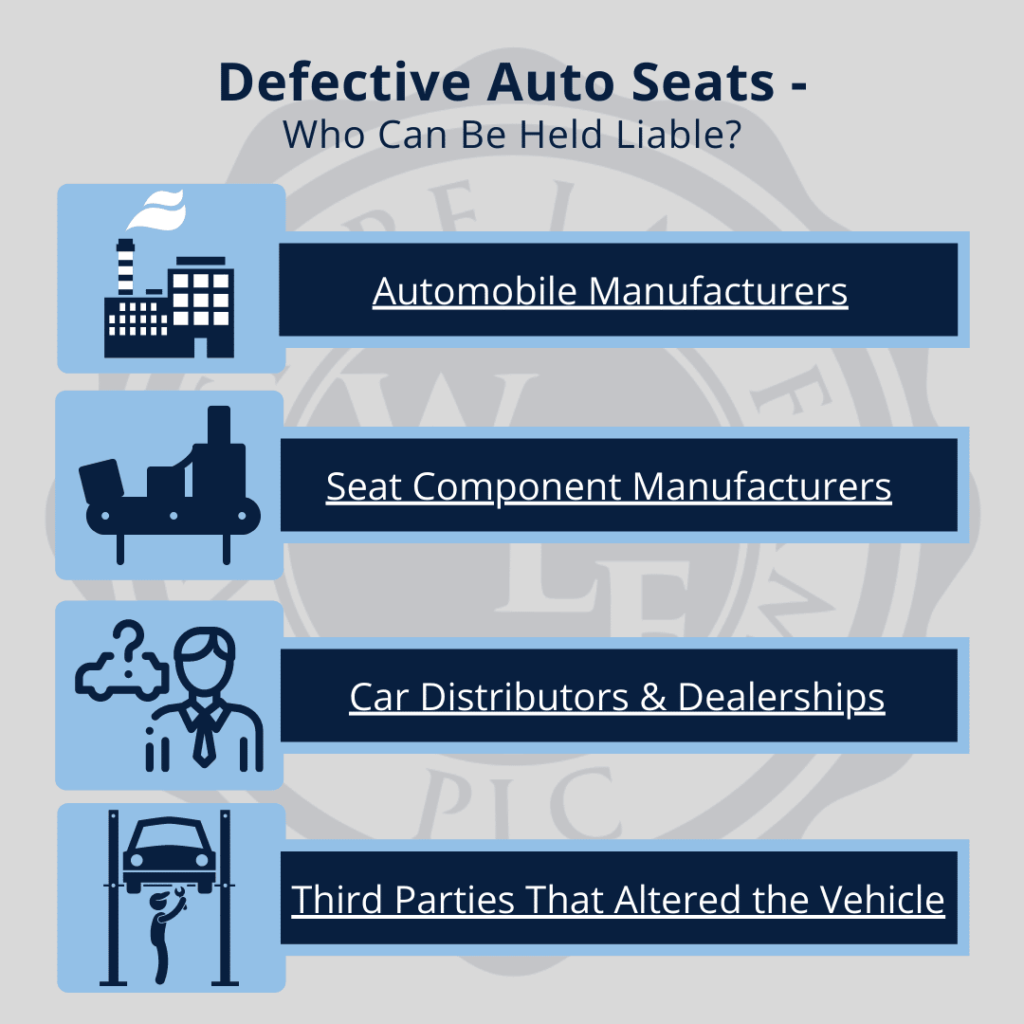If your car seat isn’t the first thing that comes to mind when you hear the term “defective auto part,” you’re not alone. Most people take the safety of their car seats for granted, causing them to overlook the signs and consequences of defective auto seats.
If a car seat breaks or fails to perform up to safety standards – especially during an accident – passengers can sustain serious and even fatal injuries. If a defective car seat injures you, you deserve compensation.
Car Seat Protection Laws in the U.S. – A Brief History
Drivers aren’t the only ones who commonly overlook the importance of protective car seats. Until 1966, when the National Highway Traffic Safety Administration (NHTSA) passed the Motor Vehicle Safety Act, car seats were completely unregulated.
In 1967, the NHTSA passed its final ruling, stating that car seats must be able to sustain impacts of 3,300 pounds of force per inch. That figure makes car seats sound sturdier than they actually are – automobile engineers have regularly criticized the Motor Vehicle Safety Act’s car seat safety requirements since the act passed.
According to one Ford engineer, “seatback strength is quite low in most American vehicles.” In an accident, it’s fairly easy for seat backs to fail, causing passengers in the front seat to collide with the roof, the passengers behind them in the back seat, or get ejected from the vehicle entirely.
According to one full-scale collision test performed to test the strength of seatbacks, “the inertial loading of the driver’s torso against the backrest caused it to fail; the driver’s torso followed the seatback… it slid 8-10 inches up… the driver’s head received a severe impact of 120 Gs at 155 ms.”
Today, many automobile manufacturing companies have stricter internal seat safety regulations than those imposed by federal law. However, the lack of attention to auto seat defects and safety standards by the federal government and some manufacturers makes broken car seats a key automobile safety concern.
How Do Car Seats Break?
Car seats are made up of several major components, as illustrated in the infographic below:

Car seat defects or failures usually occur in one of the following mechanisms:
- Car seat tracks. The track fastens the seat to the floor of the car, and allows it to move forward or backward horizontally. When seat tracks fail, the seat can become detached from the floor.
- Seatbacks and recliner components. Seat recliners allow the seatback to move up or down vertically. When the recliner or seatback fails, the seatback can collapse into the back seats, or snap forward.
- Headrests. Headrests can sometimes snap off or bend where they connect to the seatback.
Broken car seats don’t just have the potential to cause serious injuries. They also put more stress on other components, such as seatbelts, causing them to fail more easily.
Injuries & Side-Effects of Defective Auto Seats
Defective auto seats can injure passengers in a variety of ways. They can also change passenger behavior during accidents. A broken car seat can:
- Cause a driver to lose control due to seat tracks or backs breaking, causing the seat to fold backward or come loose from the floor;
- Reduce the effectiveness of other safety measures, such as airbags or seatbelts, that rely on passengers remaining in a certain position to function properly;
- Cause passengers to slide out of restraint systems, ejecting them from the vehicle;
- Cause injuries to passengers in the back seat, either due to a front seat folding or sliding backward, or because a front-seat passenger was forced backward by a broken seat;
- Reduce the ability of passengers trapped in or under broken seats to escape the scene of an accident.
Common injuries associated with defective auto seats include:
- Traumatic brain, head, or spine injuries;
- Cracked sternum;
- Vertebrae fractures;
- Burst appendix;
- Ruptured spleen;
- Bowel injuries;
- Intestinal injuries;
- Soft-tissue damage;
- Aneurysms;
- Scarring and disfigurement;
- Contusions;
- Concussions.
Can I Sue over a Defective Car Seat?
Yes. Defective seat cases are classified as product liability disputes. They frequently coincide with personal injury cases, since defective or broken car seats are often discovered as the result of an accident.
If you believe your auto seat is or was defective, you can file a lawsuit against a number of parties depending on who was responsible for the defect. Parties that can be held liable for broken car seats include:

Proving an Auto Seat Defect
If you file a product liability suit for a defective car seat or seat component, you need to prove that:
- The party you are suing was responsible for designing, manufacturing, distributing, or selling the defective seat or component;
- The seat or component was used as intended or in a reasonably foreseeable manner;
- The seat or component failed due to a design, manufacturing, or marketing defect; and
- The defective seat or component caused your injuries.
You can recover the following types of compensation from a defective seat lawsuit:
- Economic damages to cover past, present, and future monetary losses caused by the defect, including medical bills, lost wages, and other expenses;
- Noneconomic damages to cover pain, suffering, and emotional trauma;
- Punitive damages to punish the party responsible for the defective product.
Due to the complexity of car seats and crashes, having evidence to support claims of a defective seat or component is crucial. That’s why at Wilshire Law Firm, we work with experts to conduct our own accident investigations, enabling us to uncover evidence that helps our clients receive the results they deserve.
If you suffered an injury due to a defective auto seat, you deserve compensation. We’re here to help you get it. Call us now at (866) 877-4189 or contact us online for a free, discreet consultation.











